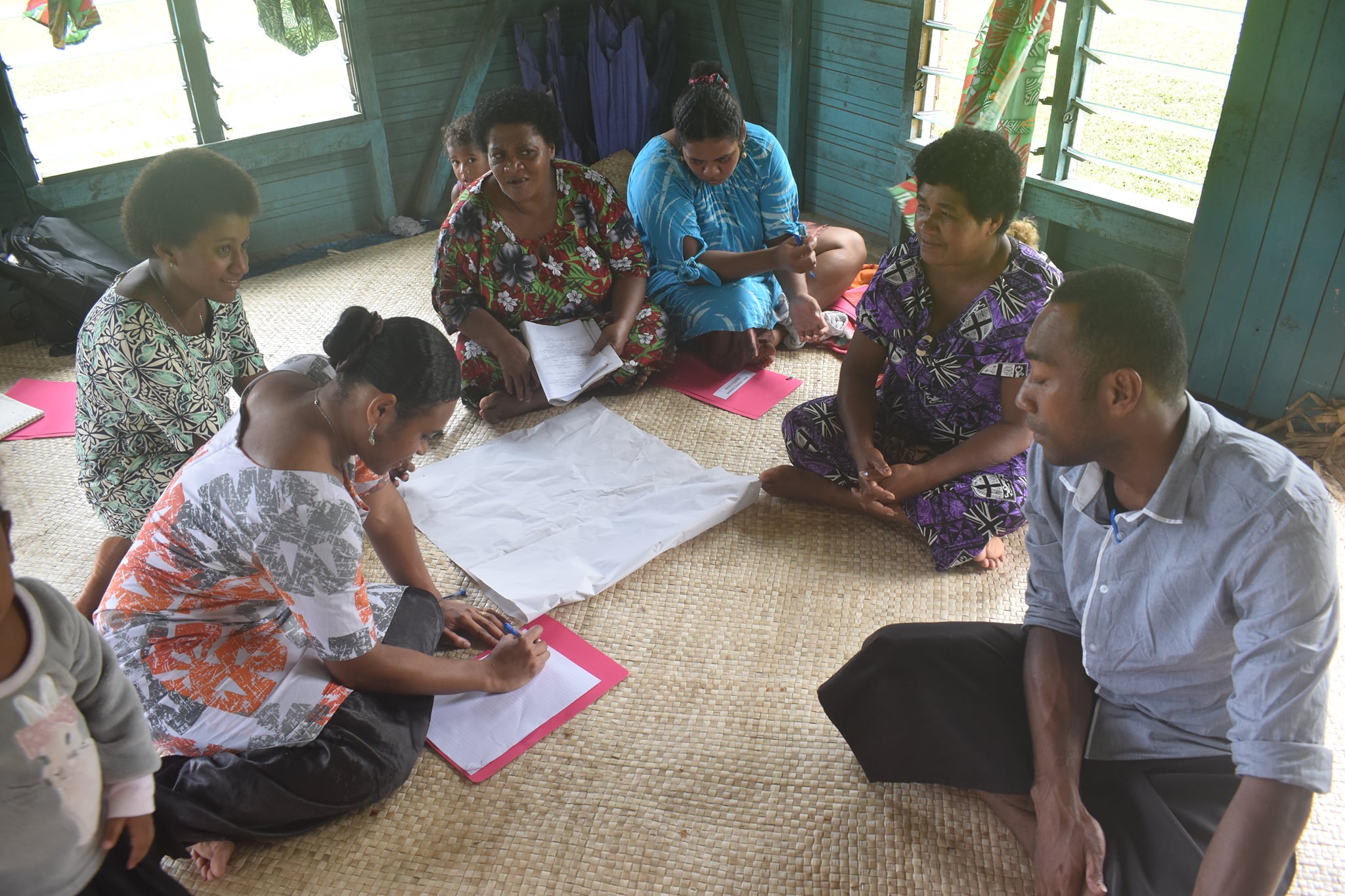Kadavu Farmers Receive Farm Management Training
April 22, 2022

Picture: Farm Management and Sustainable Land Management Training held at Niudua village for the Tikina Naceva in Kadavu.
Farmers from the districts of
Yawe, Naceva, Nabukelevu and Ravitaki in Kadavu were part of the Ministry of
Agriculture's Farm Management training to assist them better employ their
farming skills.
The training which was organized and coordinated by the Farm Management Unit of the Ministry earlier this month was held in a bid to develop and boost farm production levels for farmers in rural and maritime areas.
According to the Eastern Division Quarterly Production Report, Kadavu produced 6,795.7mt of Yaqona over the past 5 years from 2017 – 2021 and with a total of 2,452 farmers, Yaqona production accounts for 40 per cent of the total crops produced on the island over this same 5-year period.
The Farm Management training is part of the Ministry's concerted efforts in directly impacting positive change to the livelihood of farmers by introducing improved farm Business Plans and better farm plans.
Senior Agriculture Officer (Kadavu) Timoci Toga said given the geographical location and abundance of unutilized land, the training aims to improve the livelihood of the people of Kadavu.
“Majority of farmers on Kadavu are yaqona farmers and although majority have been farming for years, there is a need for them to treat farming as a business,” he said.
“Farmers must know more about Farm Management, how to organize, plan and manage the farm and the training was held to broaden their knowledge and open doors of opportunities.”
“Through the training and the assistance of technical officers in Kadavu we are hoping to shape a better Kadavu.”
In addition, farmers were reminded to monitor the impact of climate change to ensure sustainability, changes in prices of commodities and costs of inputs and Sustainable Land Management.
Record keeping was also highlighted to assist farmers keep records to measure their performance and improve efficiency of farm production and profitability of farming as a business.
Nasau farmer 27-year-old Eminoni Roko said the training had broadened his knowledge on how he could elevate his farming career and be able to change his farming to farm as a business.
For Ruci Serea, a woman farmer of Niudua village from the district of Naceva, the training had provided the opportunity for women to utilize resources such as voivoi for their livelihoods enhancement.
Ovini Seru of Tawava village in the district of Yawe thanked the Ministry for the training as they would now move in a new farming direction towards becoming more commercial and business oriented.
-Ends-
